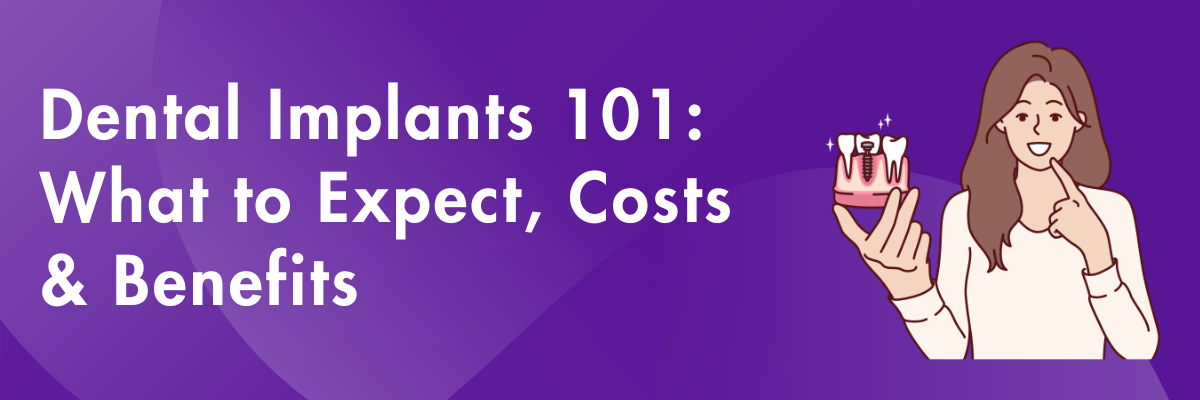
If you're missing teeth, dental implants can restore not just your smile but your confidence and oral health too. Before you decide, it’s helpful to understand what dental implants involve, their benefits, and what you can expect during the process.
What to Expect
- Consultation: Your dentist will evaluate your jawbone health and oral condition.
- Implant Placement: A titanium post is surgically placed into the jawbone.
- Healing Period: Osseointegration occurs — the bone fuses to the implant — usually over 3–6 months.
- Crown Attachment: A custom crown is placed on top to complete your new tooth.
Costs
On average, a single tooth implant (including implant, abutment, and crown) ranges between $3,000 and $7,000. Costs vary based on your location, dentist, and whether additional procedures (like bone grafting) are needed.
Benefits of Dental Implants
- Natural appearance and feel
- Improved speech and chewing
- Prevents bone loss in the jaw
- High durability — often lasting decades with proper care
- No need to alter surrounding teeth (unlike bridges)
At-Home Care for Your Dental Implants
To ensure your dental implants heal properly and last long, here are some easy steps to follow:
1.Brush Gently
- Brush your implants twice a day with a soft-bristled toothbrush and non-abrasive toothpaste.
- Be gentle to avoid irritation around the implant.
2. Floss Daily
- Use special implant-friendly floss or a water flosser to clean between your implants.
- This helps prevent plaque buildup and keeps your implants healthy.
3. Avoid Hard Foods
- Stick to soft foods during the healing period to avoid damaging your new implant.
- Skip hard foods like nuts, ice, and crunchy snacks for a few months.
4. Manage Pain
- It’s normal to have some pain or swelling after surgery.
- Take over-the-counter pain meds as recommended by your dentist, and apply ice packs for comfort.
5. Follow-Up Visits
- Attend your regular check-ups so your dentist can ensure your implants are healing well.
- These visits help catch any issues early.
6. Avoid Smoking
- Smoking can delay healing and increase the risk of implant failure.
- Try to avoid smoking, especially in the early healing stages.
7. Watch for Infection
- If you notice any pain, swelling, or unusual discomfort, reach out to your dentist right away.
- Prompt action can prevent more serious problems.
Dental implants are a significant investment, but they offer a lifetime of benefits for your health, confidence, and quality of life. A consultation with your dentist can help determine if implants are the right choice for you.
Sites/Resources:
- Mayo Clinic — "Dental implant surgery"
https://www.mayoclinic.org/tests-procedures/dental-implant-surgery/about/pac-20384622 - GoodRx — "How Much Do Dental Implants Cost?"
https://www.goodrx.com/health-topic/procedures/dental-implant-cost - WebMD — "Dental Implants"
https://www.webmd.com/oral-health/dental-implants



